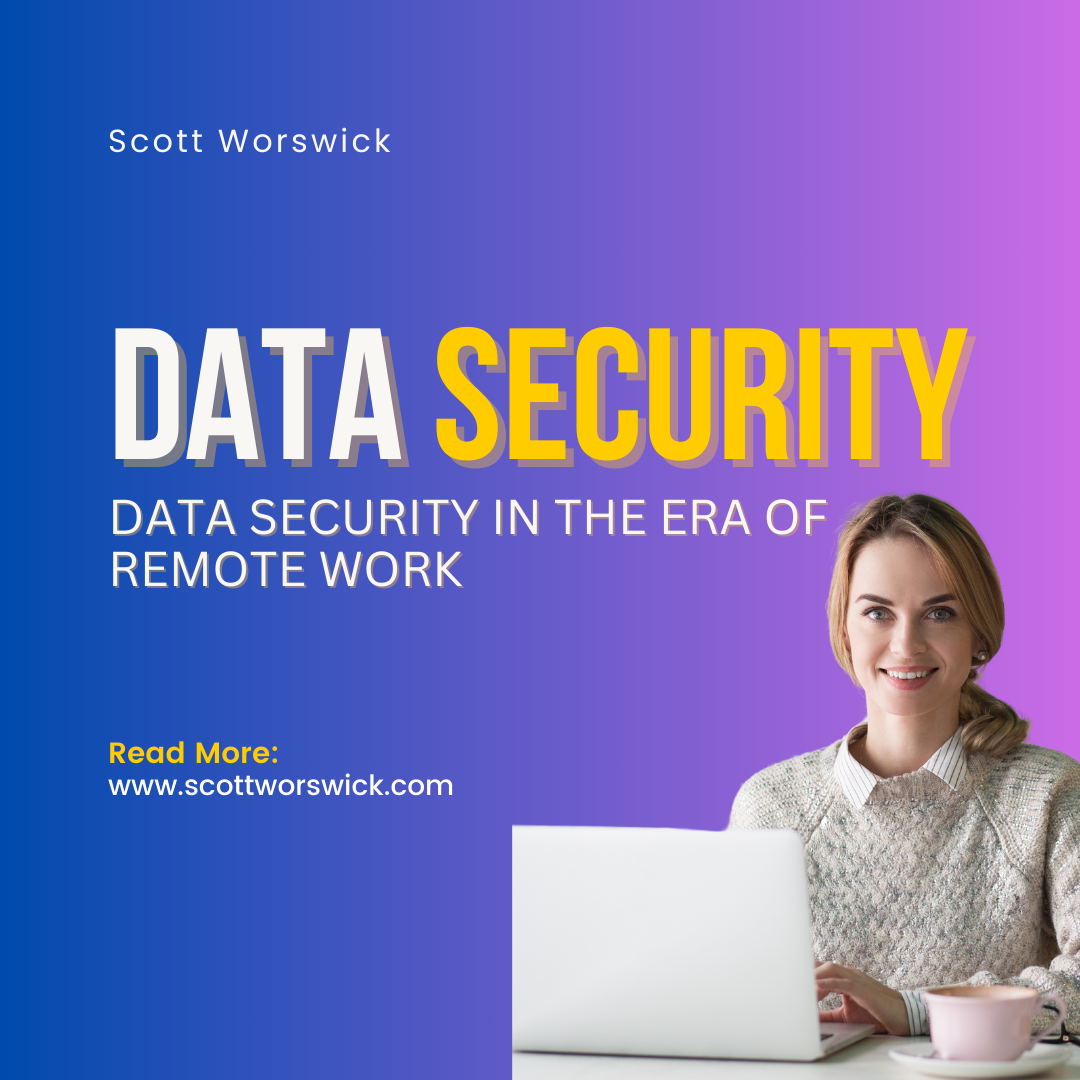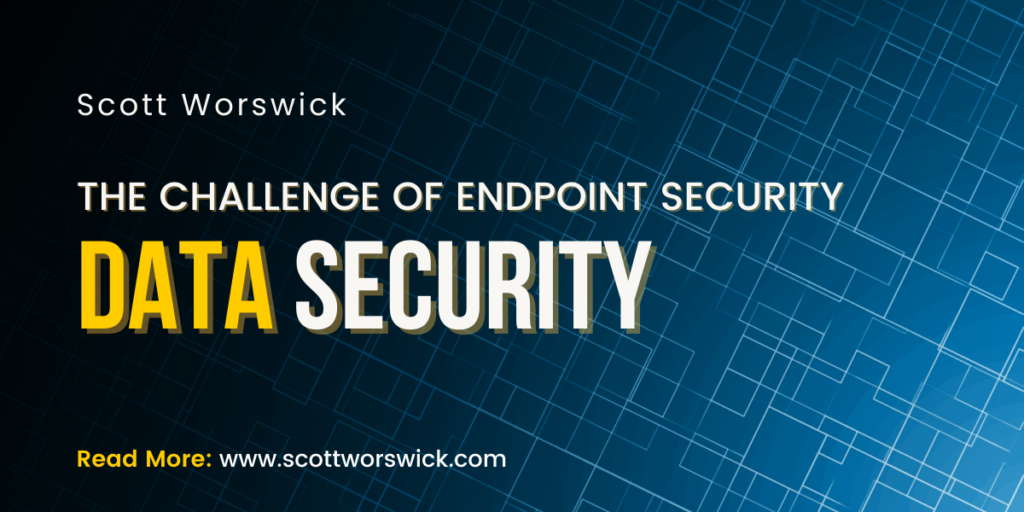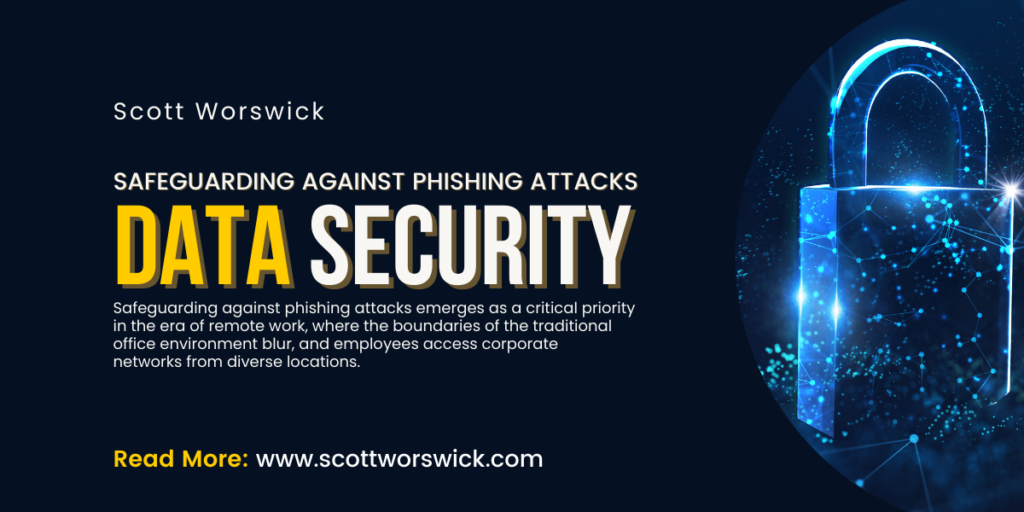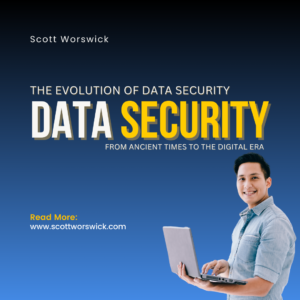In an age defined by remote work, the paradigm of traditional office settings has undergone a profound transformation. The allure of flexibility and productivity gains has propelled organizations to embrace distributed work models with fervor. However, amidst this shift towards remote work lies a critical concern: data security. As employees access sensitive information from disparate locations and devices, the sanctity of organizational data is increasingly vulnerable to a plethora of threats. In this era where the boundaries of the workplace have dissolved, the paramount challenge facing businesses is to ensure the resilience of their data security measures in the face of evolving cyber threats.
With the proliferation of remote work, the traditional perimeter-based security approach has become obsolete, giving rise to a new frontier in cybersecurity. Organizations must navigate the complexities of securing endpoints, networks, and cloud-based collaboration tools without compromising accessibility or productivity. The decentralized nature of remote work introduces unique challenges, necessitating innovative solutions to fortify data security without impeding the fluidity of remote workflows. As remote employees become the backbone of modern enterprises, the onus is on organizations to implement comprehensive security frameworks that protect sensitive data while empowering employees to collaborate effectively from any location.
Amidst the myriad challenges posed by remote work, the imperative of data security looms large as a cornerstone of organizational resilience. From mitigating insider threats to safeguarding against phishing attacks, businesses must adopt a multi-faceted approach to data security that encompasses robust endpoint security solutions, network fortification, and employee awareness initiatives. As the digital landscape continues to evolve, organizations that prioritize data security in the era of remote work will not only mitigate risks but also foster a culture of trust and innovation that propels them towards sustainable growth and success in an increasingly interconnected world.
Table of Contents
1. Embracing Remote Work: A New Frontier for Data Security
Embracing remote work marks a pivotal shift in the landscape of modern employment, offering unparalleled flexibility and efficiency. However, within this newfound freedom lies a crucial concern: data security. As organizations extend their operations beyond the confines of traditional office spaces, they encounter a host of challenges in safeguarding sensitive information. The decentralized nature of remote work introduces a new frontier for data security, where the traditional boundaries of the workplace blur, demanding innovative solutions to protect against evolving cyber threats.
One of the foremost challenges in the era of remote work is securing endpoints, the various devices through which employees access organizational data. From personal laptops to mobile devices, the diversity of endpoints amplifies the complexity of ensuring data security. Organizations must implement robust endpoint security measures to safeguard against unauthorized access and potential breaches, thereby preserving the integrity and confidentiality of sensitive information. By fortifying endpoints, businesses can mitigate the risks associated with remote work environments and uphold the trust of their stakeholders.
Furthermore, the reliance on network infrastructure for seamless communication and collaboration adds another layer of complexity to data security in remote work settings. As employees access corporate networks from diverse locations, organizations must prioritize network fortification to prevent unauthorized interception and access. Virtual Private Networks (VPNs) and encryption protocols play a pivotal role in securing data transmission, ensuring that sensitive information remains protected as it traverses between endpoints and corporate servers. By bolstering network security measures, businesses can mitigate the vulnerabilities inherent in remote work environments and uphold the integrity of their data.
In addition to technological safeguards, addressing the human element is essential in fortifying data security in the era of remote work. Employee awareness and education initiatives are paramount in empowering remote workers to recognize and mitigate potential security threats. From phishing attacks to inadvertent data exposure, remote employees must be equipped with the knowledge and resources to navigate the digital landscape safely. By fostering a culture of vigilance and accountability, organizations can strengthen their defense against data security breaches and cultivate a workforce that is resilient in the face of cyber threats.
2. The Challenge of Endpoint Security
The challenge of endpoint security looms large in the era of remote work, where employees access sensitive information from a multitude of devices and locations. With the traditional office environment giving way to a distributed workforce, organizations grapple with the complexities of safeguarding data across diverse endpoints. From personal laptops to mobile devices, each endpoint represents a potential vulnerability in the broader landscape of data security. Ensuring the integrity and confidentiality of organizational data in this decentralized environment requires a comprehensive approach that addresses the intricacies of endpoint security.
One of the primary concerns surrounding endpoint security in remote work environments is the risk of unauthorized access and data breaches. As employees access corporate networks from disparate locations, the potential for security vulnerabilities increases exponentially. Organizations must implement robust endpoint security measures to mitigate these risks, incorporating encryption, multi-factor authentication, and regular security updates to fortify endpoints against potential threats. By proactively addressing vulnerabilities at the endpoint level, businesses can bolster their defenses and uphold the sanctity of their data in an era defined by remote work.
Furthermore, the diverse array of endpoints introduces challenges in terms of managing and monitoring security measures effectively. From ensuring compliance with security protocols to detecting and responding to potential threats in real-time, organizations face a multitude of operational hurdles in safeguarding endpoints. Endpoint detection and response (EDR) solutions offer a proactive approach to endpoint security, providing organizations with the capability to identify and neutralize security threats before they escalate. By leveraging advanced endpoint security solutions, businesses can enhance their ability to protect sensitive data and mitigate the risks associated with remote work environments, thereby safeguarding their reputation and maintaining the trust of their stakeholders.
3. Fortifying Network Infrastructure
Fortifying network infrastructure emerges as a critical imperative in the era of remote work, where the traditional boundaries of office environments dissolve, and employees access corporate networks from diverse locations. As organizations embrace distributed work models, the reliance on robust network infrastructure becomes paramount in safeguarding sensitive data. Virtual Private Networks (VPNs) play a pivotal role in securing data transmission between endpoints and corporate servers, encrypting data to prevent unauthorized interception and access. By implementing stringent encryption protocols and access controls, businesses can fortify their network infrastructure and mitigate the risks associated with remote work environments, thereby upholding the integrity of their data.
Moreover, the proliferation of cloud-based collaboration tools introduces additional complexities in terms of data security within remote work environments. As employees share and collaborate on sensitive information via cloud platforms, organizations must implement comprehensive security measures to protect against unauthorized access and data leakage. Encryption, multi-factor authentication, and regular audits are essential safeguards in mitigating the inherent risks associated with cloud-based collaboration tools. By adopting a proactive approach to securing cloud infrastructure, businesses can bolster their defenses and ensure the confidentiality and integrity of their data in the face of evolving cyber threats.
In addition to technological safeguards, organizations must prioritize employee education and awareness initiatives to enhance data security in remote work environments. From phishing attacks to inadvertent data exposure, remote employees represent potential vulnerabilities in the broader landscape of data security. By providing comprehensive training and resources, businesses can empower employees to recognize and mitigate security threats effectively. Regular awareness programs cultivate a culture of vigilance and accountability, fostering a workforce that is resilient in the face of cyber threats and committed to upholding the integrity of organizational data.
Furthermore, proactive monitoring and incident response capabilities are essential components of fortifying network infrastructure in remote work environments. From detecting anomalous network activities to responding to potential security breaches, organizations must maintain a vigilant stance in safeguarding their data. Endpoint detection and response (EDR) solutions offer real-time threat detection and remediation capabilities, enabling organizations to identify and neutralize security threats before they escalate. By deploying advanced network security solutions and establishing robust incident response protocols, businesses can enhance their ability to protect sensitive data and maintain operational continuity in an era defined by remote work.
4. Heightened Concerns Over Insider Threats
In the era of remote work, heightened concerns over insider threats cast a shadow over the sanctity of organizational data. While remote work offers unparalleled flexibility and efficiency, it also introduces new vulnerabilities, particularly concerning the actions of internal stakeholders. Whether through inadvertent data exposure or malicious intent, remote employees pose potential risks to data security. As organizations navigate this landscape, they must adopt a proactive approach to mitigating insider threats and safeguarding sensitive information.
One of the primary challenges in addressing insider threats in remote work environments is the difficulty of monitoring and controlling employee activities. With employees accessing corporate networks from disparate locations, organizations face significant hurdles in maintaining visibility into employee behavior. Implementing robust access controls and monitoring mechanisms is essential in detecting and mitigating insider threats effectively. By leveraging advanced analytics and user behavior monitoring tools, businesses can identify anomalous activities and intervene before they escalate into data security breaches.
Furthermore, remote work environments exacerbate concerns surrounding data leakage and inadvertent exposure of sensitive information. From sharing confidential documents via unsecured channels to unintentionally exposing login credentials, remote employees may inadvertently compromise data security. Organizations must prioritize employee education and awareness initiatives to mitigate these risks effectively. By providing comprehensive training on data security best practices and implementing clear policies and procedures, businesses can empower employees to recognize and mitigate potential security threats in remote work environments.
Moreover, fostering a culture of vigilance and accountability is essential in mitigating insider threats in remote work environments. From implementing robust authentication mechanisms to promoting a culture of transparency and accountability, organizations must cultivate an environment where employees are vigilant guardians of data security. Regular training and awareness programs play a pivotal role in reinforcing the importance of data security and instilling a sense of responsibility among remote employees. By fostering a culture of security consciousness, organizations can mitigate the risks posed by insider threats and uphold the integrity of their data in an era defined by remote work.
5. Securing Cloud-Based Collaboration Tools
Securing cloud-based collaboration tools represents a cornerstone in the broader strategy of data security in the era of remote work. As organizations embrace distributed work models, the reliance on cloud platforms for seamless communication and collaboration has skyrocketed. However, with the convenience of these tools comes inherent risks, including unauthorized access and data leakage. Organizations must implement comprehensive security measures to protect sensitive information shared via cloud-based collaboration tools while maintaining productivity and accessibility for remote teams.
Encryption stands at the forefront of securing data transmitted via cloud-based collaboration tools, ensuring that sensitive information remains protected from unauthorized access and interception. By encrypting data both in transit and at rest, organizations can mitigate the risks associated with data breaches and uphold the confidentiality and integrity of their data. Additionally, implementing multi-factor authentication adds an extra layer of security, requiring users to verify their identity through multiple authentication factors before accessing sensitive information. By combining encryption and multi-factor authentication, organizations can fortify their defenses and safeguard sensitive data shared via cloud-based collaboration tools.
Furthermore, regular audits and compliance checks are essential components of securing cloud-based collaboration tools in remote work environments. By conducting regular audits of user access and activity logs, organizations can identify and address potential security vulnerabilities before they escalate into data security breaches. Compliance checks ensure that cloud platforms adhere to industry regulations and data protection standards, providing organizations with assurance regarding the security and integrity of their data. By prioritizing regular audits and compliance checks, businesses can maintain trust with stakeholders and uphold the confidentiality and compliance of their data in an era defined by remote work.
6. Safeguarding Against Phishing Attacks
Safeguarding against phishing attacks emerges as a critical priority in the era of remote work, where the boundaries of the traditional office environment blur, and employees access corporate networks from diverse locations. Phishing attacks remain a prevalent threat to data security, exploiting human vulnerabilities through deceptive tactics. Remote work environments provide fertile ground for phishing attempts, as employees may be more susceptible to fraudulent emails and messages while working outside the confines of traditional office settings. Educating employees about common phishing techniques and implementing email filtering solutions can significantly reduce the risk of successful phishing attacks, thereby safeguarding sensitive data from unauthorized access and exploitation.
Implementing robust email filtering solutions plays a pivotal role in mitigating the risk of phishing attacks in remote work environments. By leveraging advanced filtering algorithms and machine learning technologies, organizations can identify and quarantine suspicious emails before they reach employees’ inboxes. Additionally, conducting regular phishing simulation exercises can help employees recognize and respond appropriately to phishing attempts, fostering a culture of vigilance and resilience in the face of cyber threats. By investing in email filtering solutions and employee training programs, businesses can fortify their defenses against phishing attacks and uphold the integrity of their data in an era defined by remote work.
Moreover, multi-factor authentication (MFA) serves as an effective deterrent against phishing attacks, requiring users to verify their identity through multiple authentication factors before accessing sensitive information. By implementing MFA across various systems and applications, organizations can mitigate the risk of unauthorized access resulting from compromised credentials obtained through phishing attacks. Additionally, deploying anti-phishing solutions that analyze email content and sender behavior can help identify and block phishing attempts in real-time, further enhancing data security in remote work environments. By adopting a multi-faceted approach that combines email filtering, employee training, and multi-factor authentication, businesses can effectively safeguard against phishing attacks and protect the confidentiality and integrity of their data.
7. The Role of Endpoint Security Solutions
In the ever-evolving landscape of remote work, the role of endpoint security solutions emerges as a linchpin in safeguarding organizational data. With employees accessing sensitive information from a myriad of devices and locations, the traditional perimeter-based approach to security is rendered insufficient. Endpoint security solutions offer a proactive line of defense, focusing on securing individual devices, or endpoints, from potential threats. By deploying robust endpoint security measures, organizations can mitigate the risks associated with remote work environments and ensure the integrity and confidentiality of their data.
One of the primary challenges addressed by endpoint security solutions is the proliferation of malware and ransomware targeting remote endpoints. As employees work from various devices outside the confines of the traditional office, the risk of malware infections and ransomware attacks increases exponentially. Endpoint security solutions employ advanced threat detection mechanisms, such as behavior analysis and real-time monitoring, to identify and neutralize potential threats before they escalate. By leveraging these capabilities, organizations can fortify their defenses against malware and ransomware attacks, thereby safeguarding their data from unauthorized access and exploitation.
Moreover, endpoint security solutions play a pivotal role in enabling secure remote access for employees while maintaining productivity and accessibility. With remote work becoming the new norm, organizations must ensure that employees can access corporate networks and resources securely from any location. Endpoint security solutions offer features such as virtual private networks (VPNs) and encrypted connections, providing a secure tunnel for data transmission between endpoints and corporate servers. By facilitating secure remote access, endpoint security solutions enable organizations to embrace the benefits of remote work while mitigating the associated risks to data security.
Conclusion
As remote work continues to redefine the modern workplace, the challenges and solutions surrounding data security have never been more paramount. Organizations must navigate a complex landscape where the traditional boundaries of office environments dissolve, and employees access sensitive information from diverse locations and devices. Despite these challenges, innovative solutions abound, offering a path forward to fortify data security in the era of remote work. By embracing a multi-faceted approach that encompasses endpoint security, network fortification, employee awareness initiatives, and advanced security technologies, businesses can mitigate the risks posed by cyber threats and uphold the integrity of their data.
Furthermore, the resilience of data security in remote work environments hinges on the collective efforts of organizations and their employees. From implementing robust security measures to fostering a culture of vigilance and accountability, businesses must prioritize data security as a cornerstone of organizational resilience. By empowering employees with the knowledge and resources to recognize and respond to potential threats, organizations can cultivate a workforce that is resilient in the face of cyber threats and committed to upholding the integrity of organizational data.
As we navigate the complexities of the modern digital landscape, the imperative of data security in remote work environments will only continue to grow. By embracing proactive measures and staying abreast of emerging threats and technologies, organizations can adapt and thrive in an era defined by remote work. Ultimately, by prioritizing data security, businesses can safeguard sensitive information, maintain the trust of their stakeholders, and ensure continued success in an increasingly interconnected world.







Pingback: The Evolution of Data Security: From Ancient Times to the Digital Era -